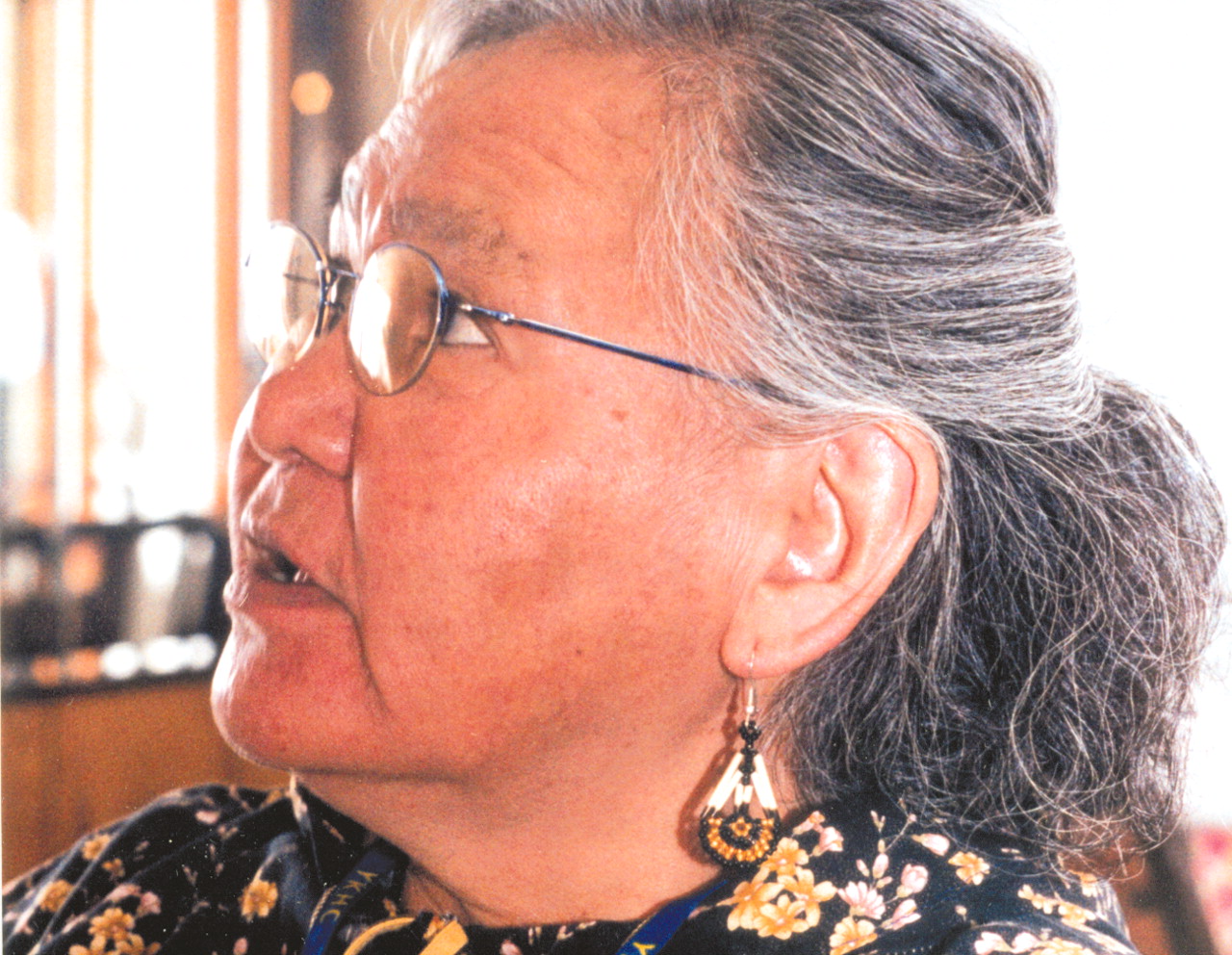Alaska Natives Help Peers Cope With Grief, Loss
August 14 was a typical day weatherwise in the Alaska town of Barrow—the northernmost town in North America and arguably the highest town in the world. Icy winds swept in from the Arctic Ocean, pummeling people’s bodies; snow whirled over the gray landscape and muddy roads.

Augusta Reimer, an Inupiaq woman from Anchorage, heads up the NAMI project to help Alaska Natives deal with mental health issues.

Liz Sunnyboy, a Yupik woman from Bethel, assists Reimer in her NAMI project efforts.
One by one, individuals came forward from the semicircle to take a long-stemmed rose from Reimer and to dedicate it to someone they had loved and lost—for example, “I dedicate this rose to my husband and son, who killed themselves,” “I dedicate this rose to my sister, who has a drinking problem,” “I dedicate this rose to my sister, wherever she may be.”
As the individuals dedicated their roses, emotions started to be released and tears to flow. Before those present could reach down to the Kleenex box for a tissue, however, the toddler sensed their emotional pain. He trotted over to the box, stooped down on his pudgy little legs, pulled tissues out of the box, and distributed them to those present.
Then all of the adults in the semicircle, at Sunnyboy’s instruction, formed a complete circle and hugged each other.
“I feel better,” said the young man who had lost his sister.
The grieving ceremony was only part of Reimer’s and Sunnyboy’s efforts to help people in Barrow recover from loss. On August 14 and 15, about 30 people attended sessions where they discussed some of the losses experienced by the Inupiaq and Yupik peoples in recent years, such as homicides, suicides, drownings, freezings, and accidents. The facilitators asked whether the participants wanted to discuss any particular losses they had experienced (some did); explained how losses affect people; and gave guidance on how people in Barrow might deal with losses. Their suggestions, they explained, came in large part from Inupiaq and Yupik elders with whom they had spoken. Here are a few of them:
• Talk about your losses with others and let others talk about their losses with you. If you have trouble talking about your losses with others, then share them with the tundra or with the animals. For example, Sunnyboy told the group how talking with the eagles had helped her when she was sick.
• Pray or meditate for help with your losses. According to Inupiaq and Yupik beliefs, mental health, physical health, and spiritual health are all connected. When you meditate, concentrate your thoughts on what you consider a “safe place.”
• Forgive those who may have been responsible for your losses. That person may be yourself. Forgiveness is healing.
• Try to heal from your losses as a community, such as in a ceremony like the one described above. “For too long our people have taken this journey to recovery alone,” Sunnyboy declared.
The sessions were attended not just by Barrow residents who had experienced losses, but also by some mental health workers in Barrow. One was Michael Danner, who runs a home in Barrow for youngsters who have been separated from their parents by court order or for other reasons. The sessions helped him better understand the emotions that people feel when they grieve over losses, Danner told Psychiatric News—in other words, the types of emotions that youngsters in his home often feel.
As part of the NAMI Alaska project, Reimer and Sunnyboy have also helped people in some other towns and villages deal with mental health issues. ▪



